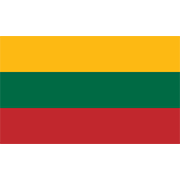Fiscal subject related
According to Article 42 of the Law on Tax Administration, taxpayers must submit to the State Tax Inspectorate the data of payments for goods sold via new functionalities with the fiscal devices:
- Taxpayers who use computer models of cash registers and whose income in 2021 exceeded 300,000 euros (from January 1, 2023);
- VAT payers who use electronic cash registers and whose income in 2021 exceeded 300,000 euros (as of January 11, 2023);
- Taxpayers using electronic models of cash registers, which were removed from the list of EKA models allowed for use in the Republic of Lithuania by 05/01/2019 (from 05/01/2024);
- All taxpayers, from January 5, 2025
Other news from Lithuania
Lithuania Tightens VAT & Fiscalization Oversight: Stricter Inspections, Cash Register Rules, and Steeper Penalties Announced
 Lithuania
Author: Nikolina Basić
Lithuania
Author: Nikolina Basić
Lithuanian tax inspections for VAT and fiscalization can take place either at the tax administrator’s office or directly at the taxpayer’s premises, with prior notification required. During an inspection, officials may review all relevant accounting records, systems, and materials, while taxpayers must provide full access and necessary documentation. Read more
Subscribe to get access to the latest news, documents, webinars and educations.
Already subscriber? Login


Sweetened drinks tax starting January 2026 in Lithuania
 Lithuania
Author: Nikolina Basić
Lithuania
Author: Nikolina Basić
Lithuania will introduce a new excise tax on sweetened non-alcoholic beverages starting January 1, 2026, targeting drinks with added sugars or sweeteners while exempting those with only natural sugars. The measure, part of the 2026 tax reform, sets tiered rates up to €21 per hectolitre and is expected to slightly raise retail prices depending on sugar content and product type. The Lithuanian Parli... Read more



Lithuania updates VAT Law with new reduced rates and exemptions
 Lithuania
Author: Nikolina Basić
Lithuania
Author: Nikolina Basić
Lithuania has proposed amendments to its VAT law introducing a 12% reduced rate for accommodation, public transport, cultural visits, and household energy supplies. The draft also extends reduced VAT to printed and electronic books and educational publications, excluding those with mainly advertising, music, or video content Lithuania has amended its Value Added Tax (VAT) law to introduce new redu... Read more



New technical documentation in Lithuania
 Lithuania
Author: Ištvan Božoki
Lithuania
Author: Ištvan Božoki
The Lithuanian Tax Authority has released version 1.9 of its technical documentation, introducing clarifications to several web services, including updates to the description of “linkedDocumentNumber” and the error code CERTIFICATE_VALID_TOO_LONG. Changes also affect the validity descriptions of transport and security module certificates in the CSR file creation guide, with the full documentatio... Read more



Lithuania begins shift toward EU-compliant Structured E-Invoicing
 Lithuania
Author: Nikolina Basić
Lithuania
Author: Nikolina Basić
Lithuania plans to implement nationwide structured e-invoicing by 2028, using the EU standard EN 16931 and aligning with the 2030 VAT in the Digital Age reforms. The system will likely adopt a 5-corner model with real-time reporting to the SABIS platform, building on its existing eSąskaita B2G infrastructure and offering free API-based tools for businesses. Lithuania has set its sights on a full-s... Read more



New document was uploaded: EV-chargers from the Fiscalization Perspective in Lithuania
 Lithuania
Author: Nikolina Basić
Lithuania
Author: Nikolina Basić
The purpose of this document is to explain rules regarding the treatment of EV chargers for electric vehicles from a fiscalization perspective. We will explain whether EV chargers need to contain cash registers and other fiscal requirements or not, is it maybe part of the e-invoicing rules, or are they exempt from those obligations? Read more
Subscribe to get access to the latest news, documents, webinars and educations.
Already subscriber? Login


Lithuania introduces the Tax sweetened beverages starting January 2026.
 Lithuania
Author: Nikolina Basić
Lithuania
Author: Nikolina Basić
Starting January 2026, Lithuania will introduce excise duties on sweetened beverages, including soft drinks, flavored waters, and concentrates with added sugar or sweeteners, under Law No. XV-286. The tax applies to both domestic production and imports for business use, with exemptions for medical products, infant formula, and non-packaged drinks from restaurants or cafes. The Lithuanian governmen... Read more


